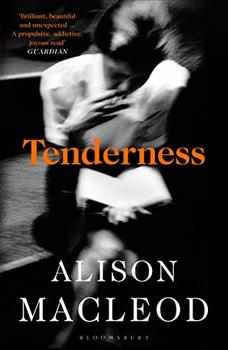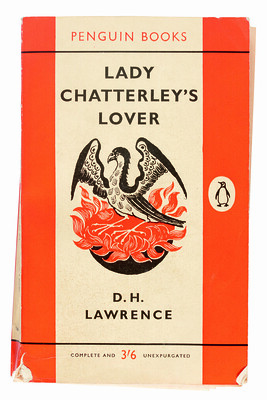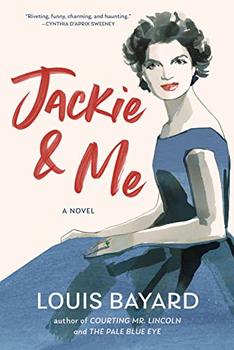Summary | Excerpt | Reviews | Beyond the book | Read-Alikes | Genres & Themes | Author Bio

For readers of A Gentleman in Moscow and Z: A Novel of Zelda Fitzgerald, an ambitious, spellbinding historical novel about sensuality, censorship, and the novel that set off the sexual revolution.
On the glittering shores of the Mediterranean in 1928, a dying author in exile races to complete his final novel. Lady Chatterley's Lover is a sexually bold love story, a searing indictment of class distinctions, and a study in sensuality. But the author, D.H. Lawrence, knows it will be censored. He publishes it privately, loses his copies to customs, and dies bereft.
Booker Prize-longlisted author Alison MacLeod brilliantly recreates the novel's origins and boldly imagines its journey to freedom through the story of Jackie Kennedy, who was known to be an admirer. In MacLeod's telling, Jackie―in her last days before becoming First Lady―learns that publishers are trying to bring D.H. Lawrence's long-censored novel to American and British readers in its full form. The U.S. government has responded by targeting the postal service for distributing obscene material. Enjoying what anonymity she has left, determined to honor a novel she loves, Jackie attends the hearing incognito. But there she is quickly recognized, and FBI Director J. Edgar Hoover takes note of her interest and her outrage.
Through the story of Lawrence's writing of Lady Chatterley's Lover, the historic obscenity trial that sought to suppress it in the United Kingdom, and the men and women who fought for its worldwide publication, Alison MacLeod captures the epic sweep of the twentieth century from war and censorship to sensuality and freedom. Exquisite, evocative, and grounded in history, Tenderness is a testament to the transformative power of fiction.
The narrative strands of Tenderness are complex, sometimes meandering and occasionally confusing. The novel will likely appeal most to fans of English literature, including those with an academic interest in Lawrence and his milieu. MacLeod tends towards long literary descriptions and journalistic details of place and character. The author has clearly done deep historical research to render details of setting, character and language throughout her substantial 640-page novel. Macleod argues for literature as a force for social and cultural change. Competing notions of "right" and "wrong" are played with by novelists and artists. The existence of such work may be backed by courts of law, academic institutions, conferences, theatres and museums. Yet, it is essential to understand that freedom of expression continues to be terribly and imperfectly negotiated in many parts of the contemporary world, where impassioned people weaponize their beliefs with war or vigilante justice...continued
Full Review
 (1004 words)
(1004 words)
(Reviewed by Karen Lewis).
 During the 1920s, author D.H. Lawrence wrote several manuscript versions of his famous Lady Chatterley's Lover, as is reflected in Alison MacLeod's 2021 historical novel Tenderness. Lawrence's earlier novel The Rainbow had been banned for its exploration of human desire, including a lesbian affair, and his agent was hesitant to commercially publish Lady Chatterley's Lover due to its sexually explicit depictions of the extramarital relationship between the title character and gamekeeper Oliver Mellors. Lawrence took matters into his own hands, arranging for a private printing of a limited edition in Florence, Italy, through Giuseppe Orioli at the Tipografia Giuntina.
During the 1920s, author D.H. Lawrence wrote several manuscript versions of his famous Lady Chatterley's Lover, as is reflected in Alison MacLeod's 2021 historical novel Tenderness. Lawrence's earlier novel The Rainbow had been banned for its exploration of human desire, including a lesbian affair, and his agent was hesitant to commercially publish Lady Chatterley's Lover due to its sexually explicit depictions of the extramarital relationship between the title character and gamekeeper Oliver Mellors. Lawrence took matters into his own hands, arranging for a private printing of a limited edition in Florence, Italy, through Giuseppe Orioli at the Tipografia Giuntina.
These 1,000 signed and numbered copies reflected the bookmaker's art...

If you liked Tenderness, try these:

by Louis Bayard
Published 2023
Master storyteller Louis Bayard delivers a surprising portrait of a young Jackie Kennedy as we've never seen her before.

by Robert Jones Jr.
Published 2022
A singular and stunning debut novel about the forbidden union between two enslaved young men on a Deep South plantation, the refuge they find in each other, and a betrayal that threatens their existence.